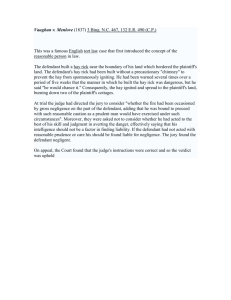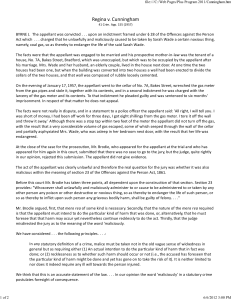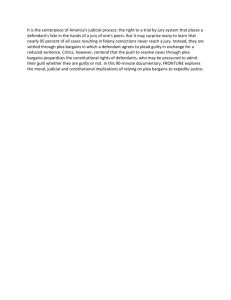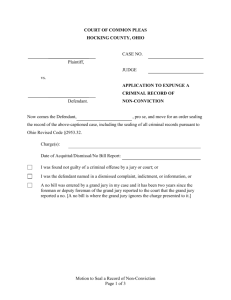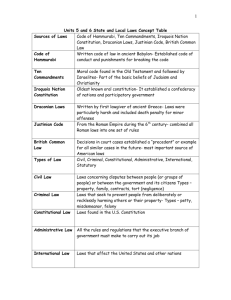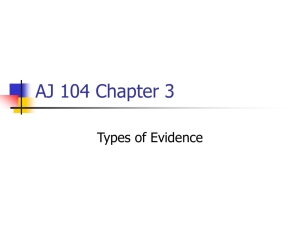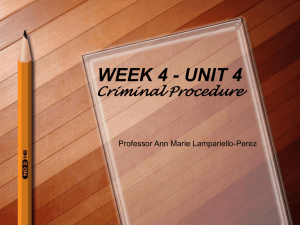Regina v - Berkeley Law
advertisement
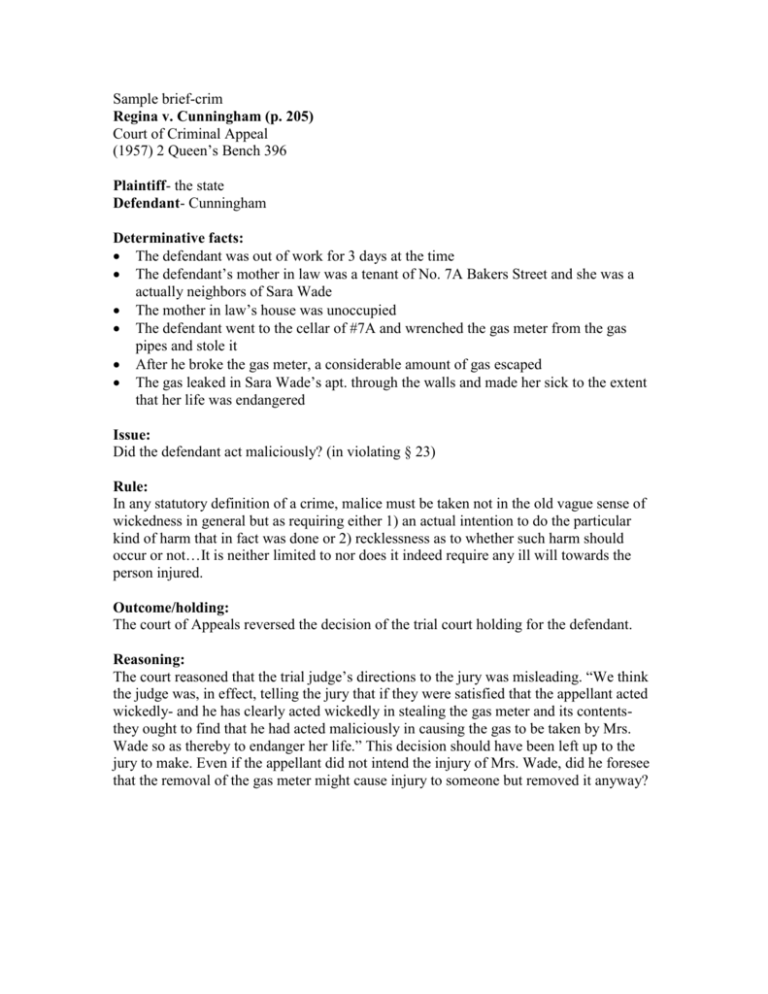
Sample brief-crim Regina v. Cunningham (p. 205) Court of Criminal Appeal (1957) 2 Queen’s Bench 396 Plaintiff- the state Defendant- Cunningham Determinative facts: The defendant was out of work for 3 days at the time The defendant’s mother in law was a tenant of No. 7A Bakers Street and she was a actually neighbors of Sara Wade The mother in law’s house was unoccupied The defendant went to the cellar of #7A and wrenched the gas meter from the gas pipes and stole it After he broke the gas meter, a considerable amount of gas escaped The gas leaked in Sara Wade’s apt. through the walls and made her sick to the extent that her life was endangered Issue: Did the defendant act maliciously? (in violating § 23) Rule: In any statutory definition of a crime, malice must be taken not in the old vague sense of wickedness in general but as requiring either 1) an actual intention to do the particular kind of harm that in fact was done or 2) recklessness as to whether such harm should occur or not…It is neither limited to nor does it indeed require any ill will towards the person injured. Outcome/holding: The court of Appeals reversed the decision of the trial court holding for the defendant. Reasoning: The court reasoned that the trial judge’s directions to the jury was misleading. “We think the judge was, in effect, telling the jury that if they were satisfied that the appellant acted wickedly- and he has clearly acted wickedly in stealing the gas meter and its contentsthey ought to find that he had acted maliciously in causing the gas to be taken by Mrs. Wade so as thereby to endanger her life.” This decision should have been left up to the jury to make. Even if the appellant did not intend the injury of Mrs. Wade, did he foresee that the removal of the gas meter might cause injury to someone but removed it anyway?
